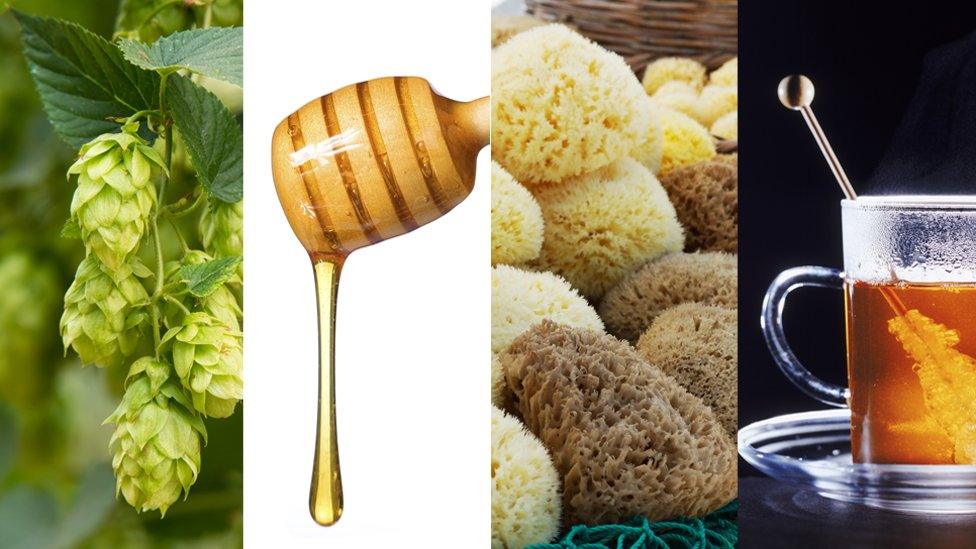Cardiff Uni's new way of making compounds for drugs
- Published
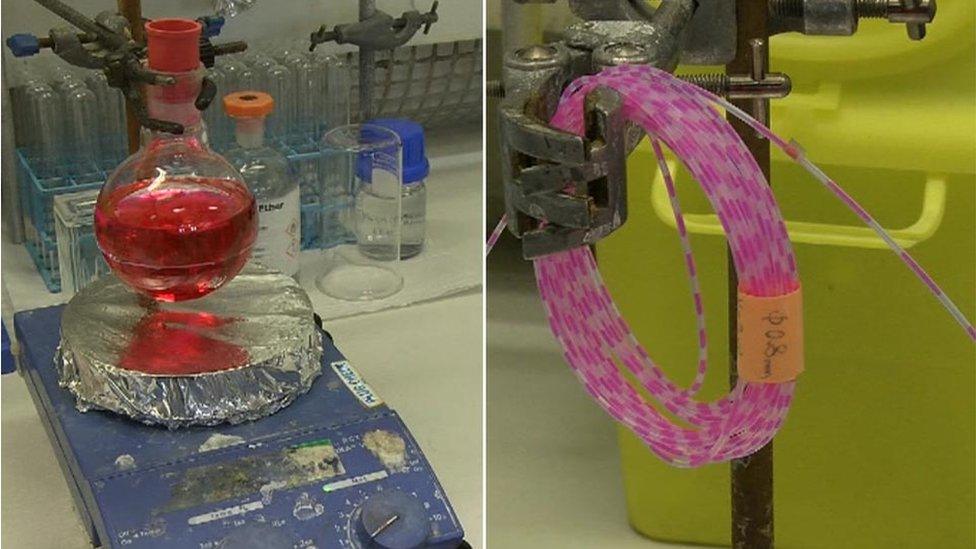
The new method sees sesquiterpenes extracted using tubes instead of flasks
Researchers in Cardiff have developed a new "highly-efficient" method of making disease-fighting compounds, including for an anti-malaria drug.
Sesquiterpenes can be found in spicy foods, plants and beer, and are used to battle colds, cancer and malaria.
A Cardiff University team said it could synthesize them more quickly and cost-effectively than before.
Prof Rudolf Allemann said it was "a major new development" in synthetic chemistry.
The method has allowed the team to almost double the usual production yield of a compound which is used to make artemisinin - the anti-malaria drug for which the Nobel Prize in Medicine was awarded in 2015 - which is not widely available in some parts of the world.
"We think that, with some other tricks, we can create a synthetic route to artemisinin that may be viable," Prof Allemann said.
"There are many things we have to control to get there but we have certainly made one key step. We think we can get there and we can produce a drug for which there is a worldwide need."
He said this could help attract companies willing to manufacture the drug.
Cardiff University academics explain how they have increased yields of anti-malaria drug artemisinin
Sesquiterpenes have so far been very difficult to make synthetically in the lab, with the process often time-consuming and expensive.
The compounds are very sticky and they tend to bind to the enzyme that produces them.
Instead of trying to separate them the traditional way - using a so-called "batch reaction" in a flask - the Cardiff University team has used winding plastic tubes.
By squeezing solutions containing the enzymes and compounds with other liquids in alternating drops through the tubes, they are able to create thousands of segments where they mix, react and separate.
The desired compound is then collected at the end.
How a new method of producing disease-fighting compounds could be more efficient
Prof Thomas Wirth, an expert in micro-fluidics, said the technique can be used for lots of different reactions.
He said mixing was "very efficient" in the capillary-type tubes, with many other advantages.
"For 10 years or so, we have used these aspects to enhance organic chemistry - to make it better, more efficient [and] safer."
The Cardiff University researchers said the new method may also give researchers easy access to lots of valuable compounds for products beyond medicine, such as fragrances, food supplements or agrochemicals for pest control.
- Published17 February 2017
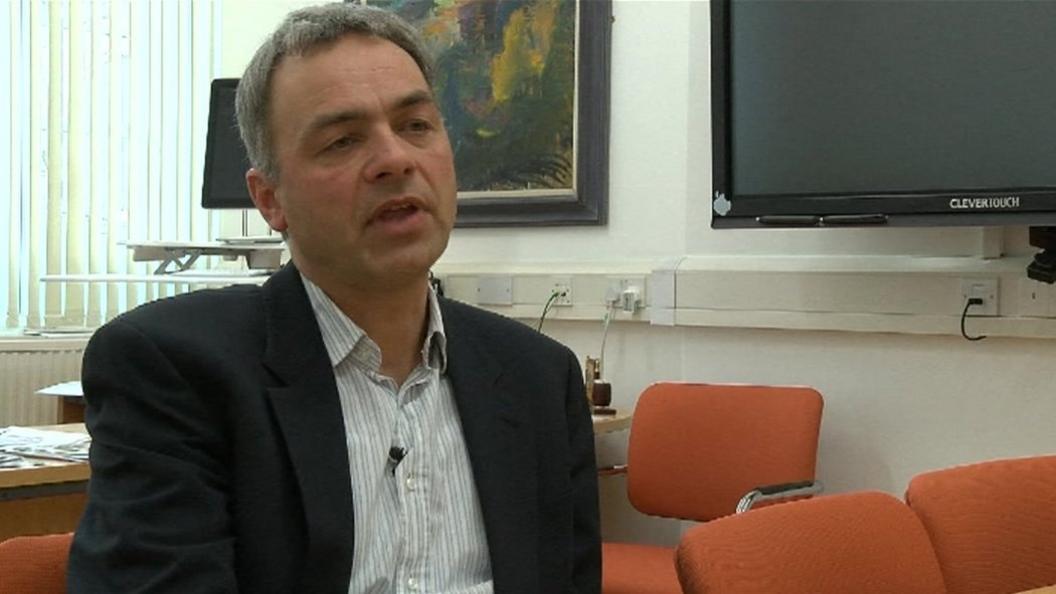
- Published5 October 2015
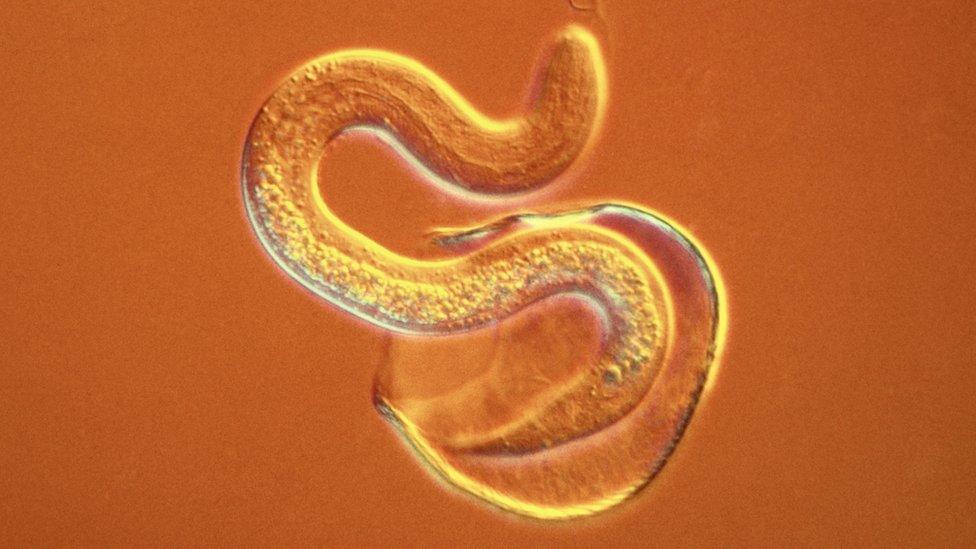
- Published6 October 2015

- Published5 December 2015
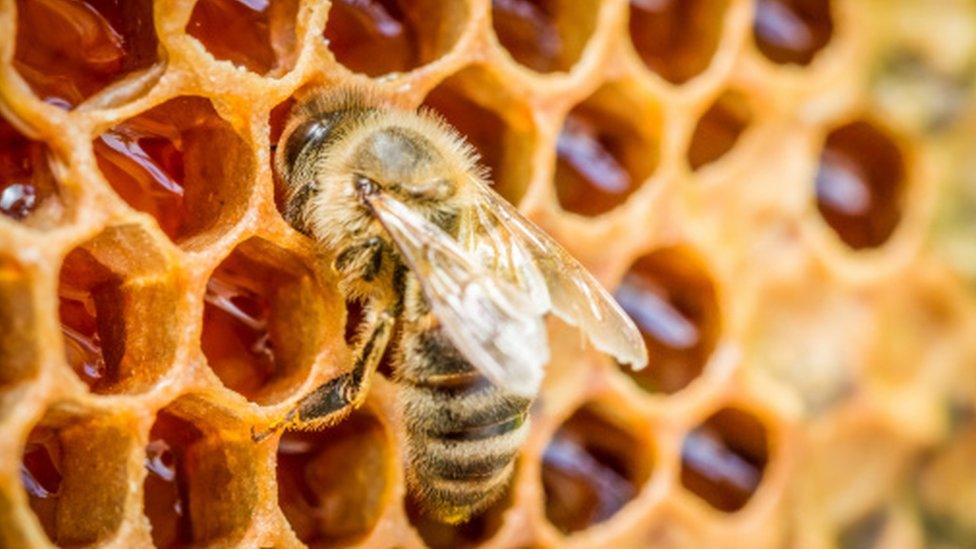
- Published6 May 2016
